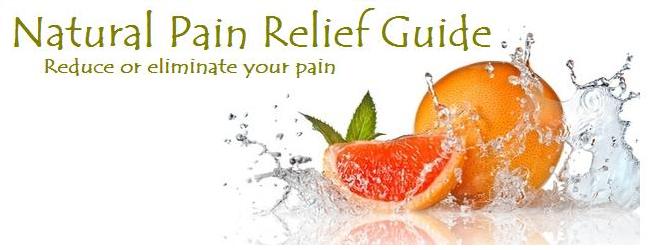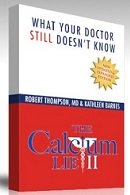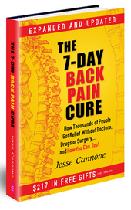|
Natural Sources of Vitamin B12
There are natural sources of Vitamin B12, even vegan ones that can help meet our Vitamin B12 needs. We need to be aware that we must have a source of B12. A vitamin (vital-amine) by definition is something that we require (is vital) and that our bodies cannot make on their own. So, whatever form you prefer to get it in, do your research and make sure you are getting what you need.
General
Vitamin B12 (or cobalamin) is a water-soluble nutrient produced by bacteria. It is not produced directly by either plants or animals. Animals get it via the bacteria they ingest along with their food. Humans don't tend to benefit from this source because of:
- Washing of foods
- Consumption of processed foods
- Cooking of foods
- Use of antibiotics
- Use of chlorinated water
- Use of toothpaste and mouthwash (otherwise some would be produced by bacteria in the mouth)
Fortunately, Vitamin B12 doesn't exit the body quickly like other water-soluble vitamins. It can be stored in the liver, kidneys and other body tissues, and as a result, a deficiency may not show up for a number of years until internal stores are finally used up. However, this time lag in visibility of symptoms can make it harder to recognize a deficiency and that can be serious because after about seven years of deficiency, irreversible brain damage can result.
Symptoms of B12 Deficiency
- fatigue, lack of energy, muscle weakness, tingling of extremities
- mental fogginess, problems with memory, trouble sleeping
- mood swings, feelings of apathy, lack of motivation
- persistent, otherwise-unexplained cough (see below)
- depression, delusions, paranoia
- dementia and Alzheimer's
- anemia, paleness
- neurological conditions
- female fertility and childbearing problems
- heart disease and cancer
- anorexia, weight loss
A Vitamin B12 deficiency can produce an elevated homocysteine level which is known to dramatically increase risk of heart disease - and there may be no warning.
Another Interesting Symptom
A Vitamin B-12 deficiency can also lead to a persistent chronic cough (laryngeal hyperresponsiveness) due to central and peripheral nervous system damage. It has been implicated in sensory neuropathy and autonomic nervous system dysfunction - which can, in turn, be related to chronic, unexplained coughs.
A recent study showed that patients with vitamin B12 deficiencies had a higher prevalence of laryngeal hyperresponsiveness. After being given B-12 supplements, their symptoms and laryngeal, bronchial, and cough thresholds significantly improved.
According to the study in the American Journal of Clinical Nutrition:
"This study suggests that [vitamin B-12 deficiency] may contribute to chronic cough by favoring sensory neuropathy as indicated by laryngeal hyperresponsiveness and increased NGF expression in pharyngeal biopsies of [vitamin B-12 deficiency] patients. [Vitamin B-12 deficiency] should be considered among factors that sustain chronic cough, particularly when cough triggers cannot be identified." (American Journal of Clinical Nutrition January 19, 2001; 93(3): 542-548)
Causes of Vitamin B12 Deficiency
- Use of the drug metformin for Type 2 diabetes (brand names include Glucophage, Glucophage XR, Fortamet, Riomet, and Glumetza) which may inhibit B12 absorption, especially at higher doses.
- Coffee consumption can significantly reduce B vitamin stores.
- Gastric bypass surgery
- Exposure to nitrous oxide (laughing gas)
- Use of antibiotics (including that contained in milk)
- Alcohol (which damages the liver, so drinkers need more B12)
- Smoking and stress
- The number one cause (especially in the elderly) is food-cobalamin malabsorption syndrome. This results when the stomach lining loses its ability to produce intrinsic factor, a protein that binds to vitamin B12 and facilitates absorption at the end of the small intestine.
The Role of Intrinsic Factor in B12 Absorption
Your body needs intrinsic factor to aid in absorption of vitamin B12 which is a very large molecule - the largest of the vitamins. Intrinsic factor, a protein made in the stomach, combines with B12 and together they move through the stomach to the small intestine. Then the intrinsic factor is absorbed and takes the B12 with it through the intestinal wall. Intrinsic factor declines with age (and in response to H. pylori infection) and may be why so many people are not getting adequate B12.
Getting/Restoring Your B12
If you are not getting enough from natural sources of Vitamin B12, science has recently developed a sublingual delivery system using a fine mist containing Vitamin B12 that you can spray under your tongue where it is absorbed by the fine capillaries there. This bypasses the intrinsic factor problem and is an effective way to supplement B12 levels. Pill forms of B12 will be less effective but be sure you are getting it somehow.
One suggestion I saw of natural sources of Vitamin B12 was to buy organic carrots and be sure to eat the unwashed roots. Better yet, grow your own. Washing will kill or wash off the bacteria, rich with and capable of producing Vitamin B-12. (Of course, clean them up, just don't scrub or peel them.
Other Information Related to Natural Sources of Vitamin B12
Vitamin B12 contains the trace element cobalt, hence its other common name, cobalamin. All vertebrates require cobalt which is available to them only in the form of Vitamin B12.
Algae and some other plant foods contain B12-analogues that can look like true B12 in blood tests while actually interfering with B12 metabolism by occupying B12 receptor sites on cells.
Vitamin B12 helps maintain your brain function as low levels can hasten mental decline. A study by Robert Clarke of Oxford University published in November's American Journal of Clinical Nutrition tracked 1,648 men and women age 65 and older for 10 years. Previous research indicated that B12 and folic acid - another B vitamin-might help fend off Alzheimer's disease. The new study found that a lack of B12 could diminish cognitive function.
The best measurement of Vitamin B12 levels is through testing of homocysteine and methylmalonic acid levels which can be related to B12 levels. This is more reliable than blood tests of B12 levels.
Vitamin B12 is involved in a variety of metabolic functions in the liver, often acting as a co-enzyme. It is involved in both amino acid / protein metabolism and the synthesis of fats. It is therefore possible that people on a higher-protein diet require more of it.
Vegetarian supplements of B12 are notoriously ineffective in raising B12 levels.
More sensitive analysis is now showing minute amounts of B12 in all raw foods.
|
Keep up to date with
valuable insights into
pain management via
a healthy lifestyle.
Receive the monthly
Natural Pain Relief
Guide Newsletter.
News articles, health
tips, specials, freebies.
Enter your email and name
in the form to the right.
|
|
|









New! Comments
Have your say about what you just read! Leave me a comment in the box below.